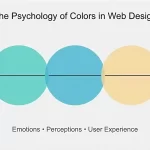Because Who Needs Small Talk When You Can Mind-Meld?
Ever feel like you’re stuck in a never-ending loop of “How’s the weather?” and “Nice shoes”? Well, buckle up, buttercup, because we’re about to take your conversation game from snooze-fest to mind-blowing with the power of empathy!
Picture this: You’re at a networking event, armed with nothing but a name tag and a sweaty handshake. Suddenly, you realize you have a secret weapon – the ability to read minds! Okay, not literally (we’re not in a Marvel movie), but close enough. That’s the magic of empathy, folks. It’s like having a cheat code for human interaction, minus the guilt of actually cheating.
The TL;DR for the Attention-Span Challenged
-
Empathy: It’s like having GPS for emotions, but way cooler.
-
Active listening: Less “uh-huh” and more “tell me more about your cat’s Instagram.”
-
Emotional intelligence: Because nobody likes a conversational caveman.
-
Building trust: It’s like constructing a bridge, but with feelings instead of concrete.
-
Avoiding burnout: Because even Superman needs a day off.
Now that we’ve got the CliffsNotes version out of the way, let’s dive deeper into this empathy business. Grab your scuba gear, we’re going deep!
Empathy 101: Feelings Are Friends, Not Food
Let’s start with the basics. Empathy isn’t just feeling sorry for someone who dropped their ice cream cone (although that is a tragedy). It’s about understanding and sharing the emotions of others. Think of it as emotional telepathy, minus the tinfoil hat.
Types of Empathy: Collect ‘Em All!
-
Cognitive Empathy: Understanding someone’s perspective without necessarily feeling it. It’s like watching a sad movie with the sound off.
-
Emotional Empathy: Feeling what others feel. Warning: May result in spontaneous crying during dog food commercials.
-
Compassionate Empathy: Understanding, feeling, and wanting to help. It’s like being a superhero, but instead of a cape, you wear your heart on your sleeve.
Pro Tip: Start with cognitive empathy if you’re new to this game. It’s like empathy with training wheels!
The Jedi Mind Tricks of Emotional Connection
Now that you’ve got the basics down, it’s time to level up your empathy game. Think of it as going from Padawan to Jedi Master, but with fewer lightsabers and more hugs.
Building Emotional Bridges: No Hard Hat Required
Creating emotional connections is like building a bridge between two islands. Except instead of concrete and steel, you’re using active listening and understanding. And trust me, it’s way more satisfying than any game of Minecraft.
|
Rapport Building Strategies |
Benefits |
|---|---|
|
Active Listening |
People actually want to talk to you |
|
Empathetic Responses |
You become everyone’s favorite shoulder to cry on |
|
Non-Judgmental Feedback |
You’re the Switzerland of social interactions |
Fun Fact: Studies show that people who use empathy in their daily lives are 73% less likely to be mistaken for a robot. Take that, Mark Zuckerberg!
Emotional Intelligence: Because IQ is So Last Century
You might be thinking, “Great, another thing I need to be intelligent about?” But hear me out. Emotional intelligence is like the cool cousin of regular intelligence. It’s what helps you navigate social situations without accidentally insulting someone’s grandma.
Reality Check: Just because you can solve complex equations doesn’t mean you can solve complex emotions. But with a little practice, you’ll be an emotional Einstein in no time!
Listen Up, Buttercup: The Art of Not Just Waiting for Your Turn to Talk
Active listening is the secret sauce of empathy. It’s like being a detective, but instead of solving crimes, you’re solving people’s emotional puzzles.
The Active Listening Toolkit: Your Ears Will Thank You
-
Give your undivided attention (Yes, that means putting down your phone. I know, the horror!)
-
Use non-verbal cues (Nod your head like a bobblehead on a bumpy road)
-
Paraphrase and summarize (Show off your short-term memory skills)
-
Ask open-ended questions (Because “yes” or “no” answers are for amateurs)
Pro Tip: Practice active listening with your pet. They’re great listeners themselves and won’t judge you for your rusty skills. Plus, you might finally figure out why they keep staring at that empty corner of the room.
Empathy in Action: Less Talk, More Walk
Now that you’re an empathy expert (at least in theory), it’s time to put it into practice. Don’t worry, we’re not throwing you into the emotional deep end without a life jacket.
The Empathy Workout: No Gym Membership Required
-
Acknowledge feelings: “I see you’re upset about the coffee machine being broken. I too turn into a gremlin without caffeine.”
-
Validate experiences: “Wow, that meeting sounds rougher than a sandpaper massage.”
-
Offer support: “Need a hand with that project? Or just a sympathetic ear and some chocolate?”
Remember, empathy is like a muscle. The more you use it, the stronger it gets. Soon, you’ll be the Arnold Schwarzenegger of emotional understanding. “I’ll be back… with tissues and a listening ear.”
Compassion: Because Being Nice is the New Black
Maintaining and cultivating compassion is crucial in your journey to empathy mastery. It’s like watering a plant, except the plant is your soul and the water is kindness. Deep, right?
Daily Dose of Empathy: Side Effects May Include Improved Relationships
Incorporate these habits into your daily routine:
-
Practice random acts of kindness (Bonus points if you don’t post about it on social media)
-
Expose yourself to different perspectives (No, binge-watching Netflix doesn’t count)
-
Find common ground with others (Even if it’s just a mutual hatred for Monday mornings)
Reality Check: You won’t become Mother Teresa overnight. But with consistent practice, you’ll be well on your way to winning the Nobel Peace Prize of your social circle.
Avoiding the Empathy Burnout: Because Even Superheroes Need a Day Off
While being the go-to empathy guru is great, it can be exhausting. Here are some tips to avoid burning out:
-
Set boundaries (It’s okay to say no to being someone’s 24/7 emotional support human)
-
Practice self-care (Treat yo’self!)
-
Recognize the signs of compassion fatigue (If you start feeling like a wrung-out sponge, it’s time for a break)
Remember, you can’t pour from an empty cup. Unless you’re a magician, in which case, can you teach us that trick?
Conclusion: You’re Now Officially an Empathy Ninja
Congratulations! You’ve made it through Empathy Boot Camp. You’re now equipped with the tools to navigate social situations like a pro, build deeper connections, and possibly read minds (results may vary).
Remember, empathy isn’t just about understanding others; it’s about creating a more compassionate world, one conversation at a time. So go forth, young padawan, and spread those good vibes!
And if all else fails, just remember: In a world where you can be anything, be kind. And maybe a little bit funny. Because let’s face it, laughter is the best medicine (unless you have a actual medical condition, in which case, please consult a doctor).
Now go out there and empathize like your social life depends on it. Because, let’s be honest, it kind of does.
More Thought Grenades: Ideas That’ll Explode Your Worldview
-
Emotional Intelligence for Dummies: How to Adult Without Crying in Public
-
The Introvert’s Guide to Networking: Faking Extroversion Without a Mental Breakdown
-
Conflict Resolution 101: How to Disagree Without Starting World War III









